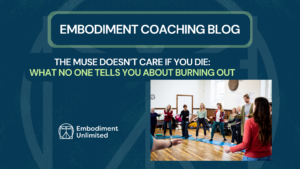Let’s be honest: burnout isn’t just about doing too much. It’s about doing too much of the wrong things — or too much of the right thing, without rhythm, rest, or reality checks. Most advice out there? Surface-level. Have a bubble bath. Get a massage. Take a week off. All great — but like trying to bail water out of a sinking boat with a teacup.
Here’s the truth they rarely share: your purpose, your passion—that fiery drive within you—has the power to ignite greatness, but it can just as easily consume you.
Purpose is Energy — Until It Isn’t
When purpose burns brightly, it can feel like nothing is impossible. Meaning fuels action — waking early, working late, pouring your heart into what matters most. It doesn’t always feel like discipline; sometimes it feels like being pulled by something bigger than yourself. Inspiration can drive people to write books, launch projects, speak out, serve others. There’s a vitality, a momentum — not from hacks or secret formulas, but from an inner fire.
But here’s the truth: purpose can be a double-edged sword. The muse doesn’t care if you burn out. That deep sense of meaning, that call to serve, can keep urging you forward even when your body is waving the white flag. The drive that fuels creative brilliance or passionate service can, if left unchecked, tip into depletion. It’s a common story — people flying too close to the sun, fuelled by purpose, only to crash when their energy runs out.
Burnout: Death by a Thousand Yesses
Exhaustion often doesn’t come from doing what’s meaningful — it comes from doing what isn’t. Many people aren’t burnt out because they’re living their purpose, but because they’re constantly pulled into other people’s. Saying yes when they want to say no. Giving to others while quietly abandoning themselves. Boundaries blur, and over time, energy drains.
The missing piece usually isn’t knowledge. It’s embodiment. You can understand boundaries intellectually, read every book on saying no — but unless your body learns the pattern, nothing truly shifts. Real change comes through practice, through felt experience, through community. It’s not about more information. It’s about new ways of being.
Accepting Reality is Enlightenment
There comes a point when pushing through just doesn’t work anymore. The body changes. Energy changes. What once felt easy — late nights, missed meals, relentless schedules — starts to take a toll. That’s not weakness. It’s reality. True self-care starts with radical honesty about where you are in life — your age, your season, your current capacity.
Because rhythm matters. Cycles matter. We’re not meant to be in constant motion. Just as nature has its seasons — day and night, summer and winter — so do we. Rest is as essential as action. If life becomes all “go,” without pause or recovery, the nervous system will eventually step in. And if we don’t listen to the whispers, it may speak louder — through fatigue, burnout, or illness. Recognising and honouring your rhythm isn’t indulgent. It’s necessary.
Self-Regulation Isn’t a Quick Fix
It’s tempting to look for the quick fix — the one breathwork hack, the perfect meditation, the magic trick that will make everything better in minutes. But real change doesn’t usually work like that.
What truly supports transformation? Awareness. Choice. Practice. And not just once — but over time, with consistency, and ideally, in community. With kindness. With a little accountability.
Frameworks like polyvagal theory, trauma-informed coaching, and nervous system science are helpful — not because they’re popular, but because they give language to what many of us feel but can’t yet name. They offer insight and understanding. But even the most elegant theory is only a map. The real journey is lived — through your body, your breath, your everyday choices. It’s not about perfect knowledge. It’s about embodied experience.
Build a Life That Sustains You
Burnout recovery isn’t just about taking time off. It’s about creating a life you don’t feel the need to escape from. A life that sustains you, not drains you.
That kind of recovery rests on four pillars in the Tetrarchy model:
- Self-regulation – Movement, stillness, breath, embodiment. Finding the practices that genuinely help your nervous system feel safe, steady, and alive.
- Co-regulation – Supportive relationships. People who see you, believe in you, and offer encouragement without pressure. We’re not meant to do this alone.
- Eco-regulation – Nature’s quiet medicine. The grounded presence of trees. The steadiness of rivers. Places where you don’t have to perform — where you can simply be.
- Theo-regulation – Spirit, purpose, meaning — whatever language fits. Something bigger than you, so you’re not carrying the weight of the world on your own shoulders.
If one pillar feels shaky, lean on the others. That’s how resilience is built — not through perfection, but through rhythm, connection, and meaning. Because healing doesn’t happen in isolation, and staying well requires more than rest. It asks us to belong — to ourselves, to each other, to the Earth, and to something greater.
The Punchline
You can be burnt out because you’ve lost touch with your purpose.
Or you can be burnt out because you’ve been burning too hard in service of it.
Either way, the answer isn’t more pushing. It’s deeper listening. Slower cycles. Embodied boundaries. And a bloody good bubble bath (with candles, obviously).
Ready to build a life that sustains you — not just one you survive?
Join the Embodied Flourishing Membership.
Weekly support. Community. Real tools. Zero fluff.
👉 Click here to sign up
Your nervous system will thank you.



